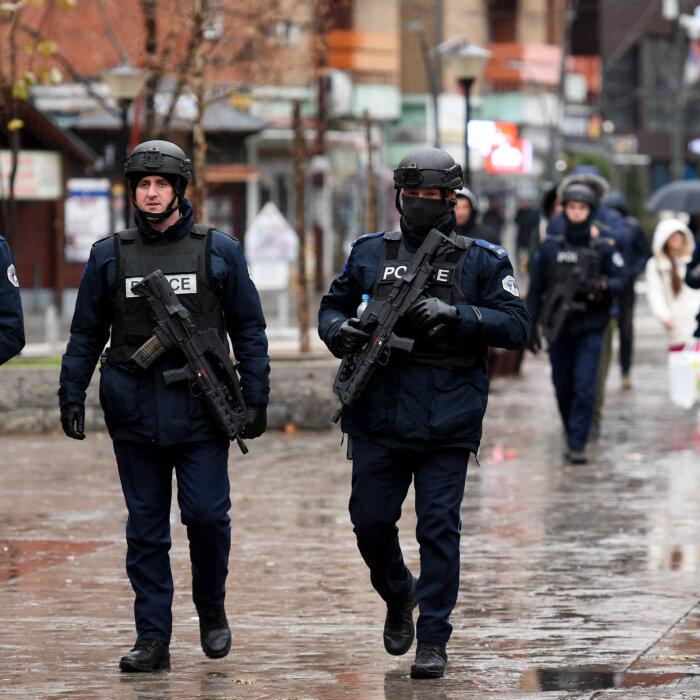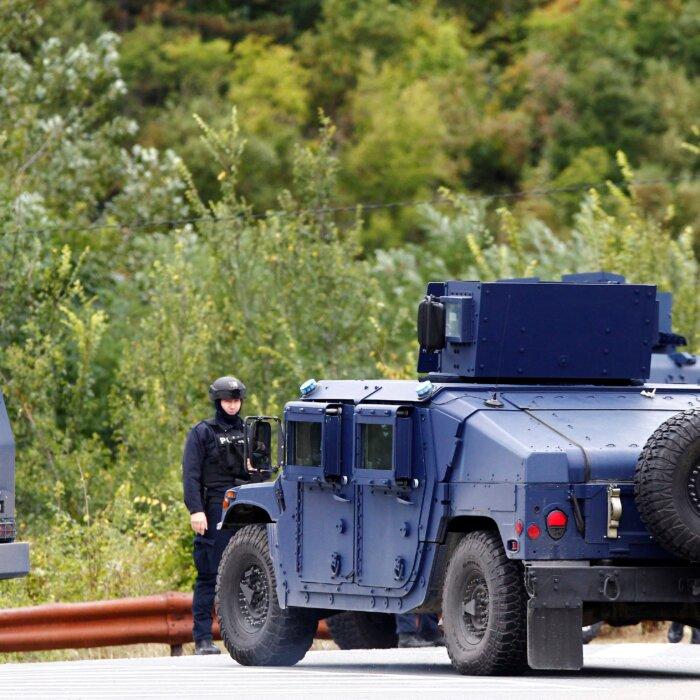The first session of Kosovo’s newly-minted parliament was scrapped on Tuesday after it failed to constitute freshly elected representatives.
The deputies of the new Kosovo Assembly did not take the oath at the constitutive session, elect the speaker of the Assembly, and vote for the new government.
At the session, chaired by Avni Dehari, the oldest deputy in the hall, the report of the Commission for the Verification of Mandates and Quorum was not approved.
The vote failed to pass with 52 votes in favor, 46 against, and 11 abstentions.
The move could plunge the Balkan country into a prolonged period of legal wrangling before a new cabinet can be formed.
After a brief delay to proceedings, the opposition voted against a report into whether acting prime minister Albin Kurti and his cabinet acted in accordance with the constitution when they failed to resign following the election in February.
The result of that poll was Kurti’s left-wing Self-Determination Movement, or Vetevendosje!, winning 48 out of 120 seats, falling short of the majority needed to form a cabinet on its own.
In 2021, Vetevendosje! won 58 seats.
Though Kurti’s party distributed a letter of resignation on Tuesday, as is required under the constitution, the acting speaker cancelled the session, and said that the parliament would now consult the Kosovar President Vjosa Osmani on how to move forward.
Under Kosovar law, officials in the executive must resign their posts in order to take up their parliamentary mandates in the procedure for forming a new government.
Once the lawmakers’ mandate and the election of the parliament’s speaker and its deputies have been approved, the president will send to parliament a letter of nomination for Kurti, who Vetevendosje! has designated as prime minister.
While he needs a simple majority of 61 votes in parliament, to form a cabinet, Kurti has previously ruled out a coalition with the center-right Democratic Party of Kosovo, or PDK, which came second in the election with 24 seats.
He has also ruled out governing with the conservative Democratic League of Kosovo, or LDK, which won 20 seats, or the rightist Alliance for Kosovo’s Future, AAK, which has eight seats.
In turn, those three parties have ruled out any coalition with Vetevendosje!.
This leaves Kurti with the option of looking to 10 non-Serb minority MPs, but that still has him at least three votes short.
If Kurti fails to form a cabinet, the president is entitled to turn to any of the other parties.
If no party can form a cabinet, Kosovo will face an early parliamentary election.
A new cabinet is needed to run the country internally, but also to continue with the normalization talks with Serbia, which have so far lasted 14 years, failed to make any progress, and left bilateral ties tense.
Around 11,400 people died in the 1998-1999 war in Kosovo, mostly from Kosovo’s ethnic Albanian majority.
A NATO air campaign lasting 78 days ended the bloodshed and forced out the Serbs.
Kosovo unilaterally declared independence from Belgrade in 2008, with most nations in the West recognizing it as a new sovereign state.
But dozens of countries, including Serbia, Russia, and China, do not recognize Pristina’s independence.
Moscow in particular shares deep cultural, ethnic, and religious ties with Belgrade and, unlike most European nations, Serbia has opposed sanctions on Russia over its invasion of Ukraine.
Ethnic Serbs in northern Kosovo are also opposed to Kosovo’s independence and still look to Belgrade, not Pristina.
The EU and the United States have urged Kosovo and Serbia to implement agreements reached two years ago that include a commitment by Pristina to establish an Association of Serb-Majority Municipalities and oblige Belgrade to provide de facto recognition of its old province’s independence.







